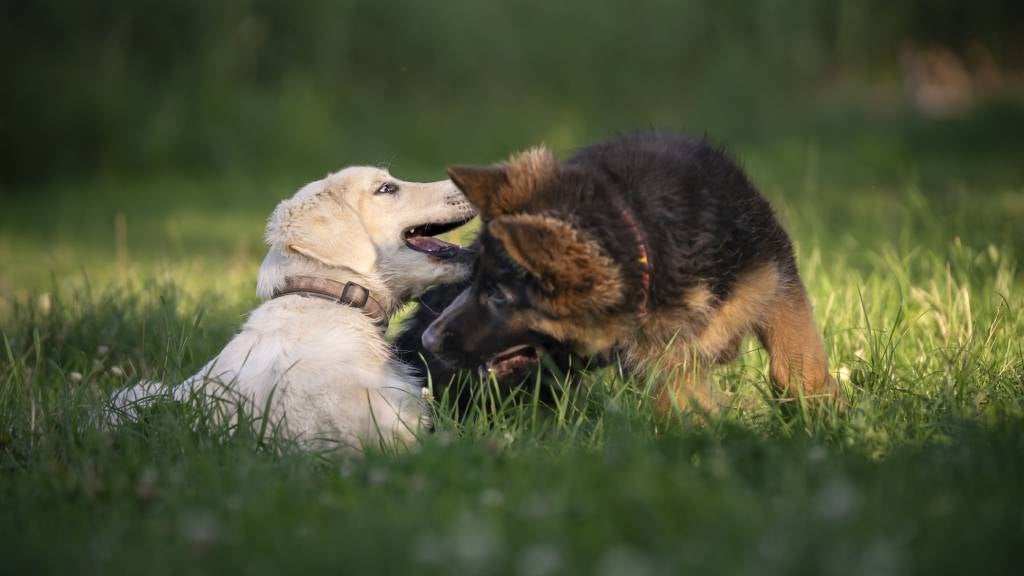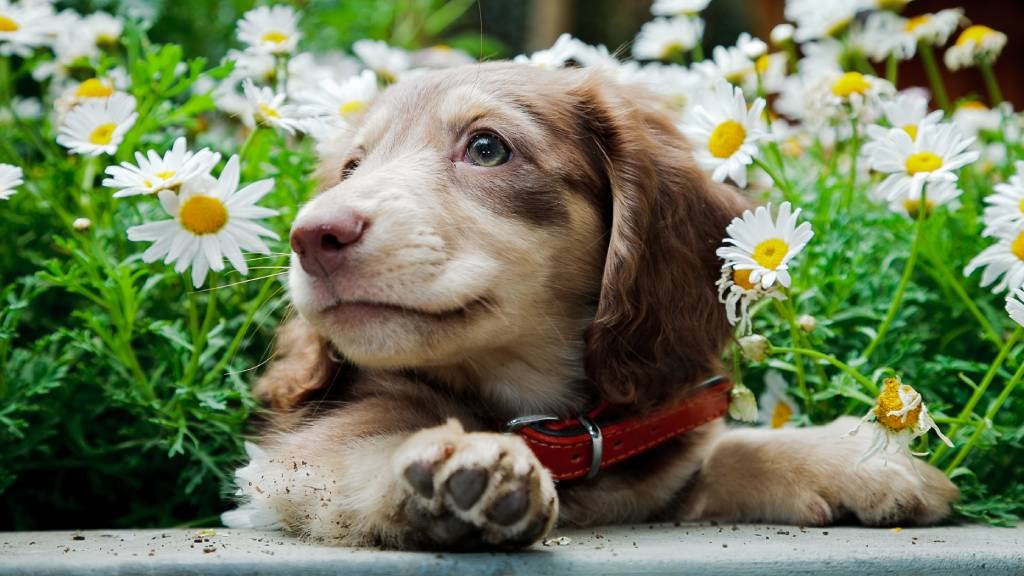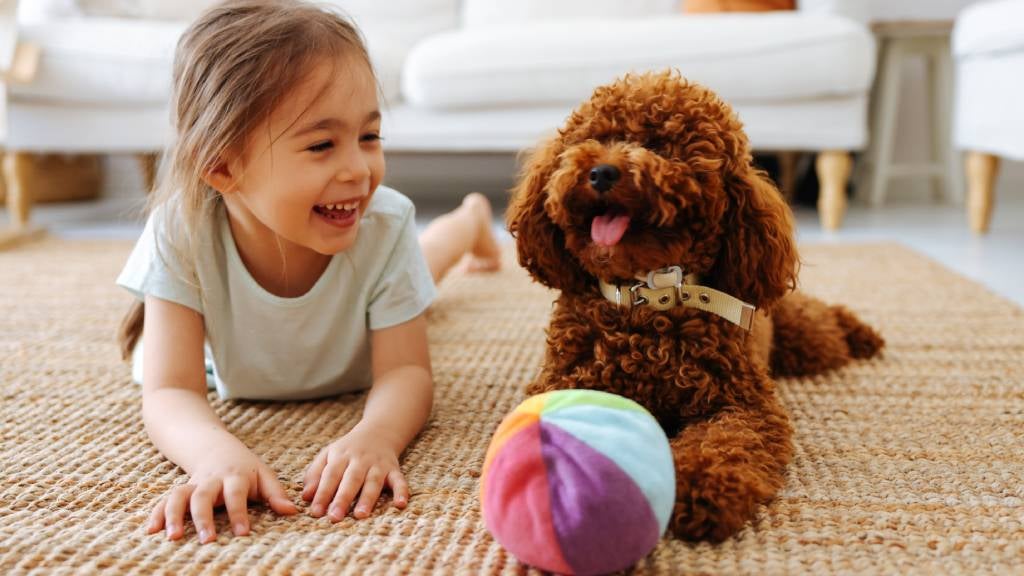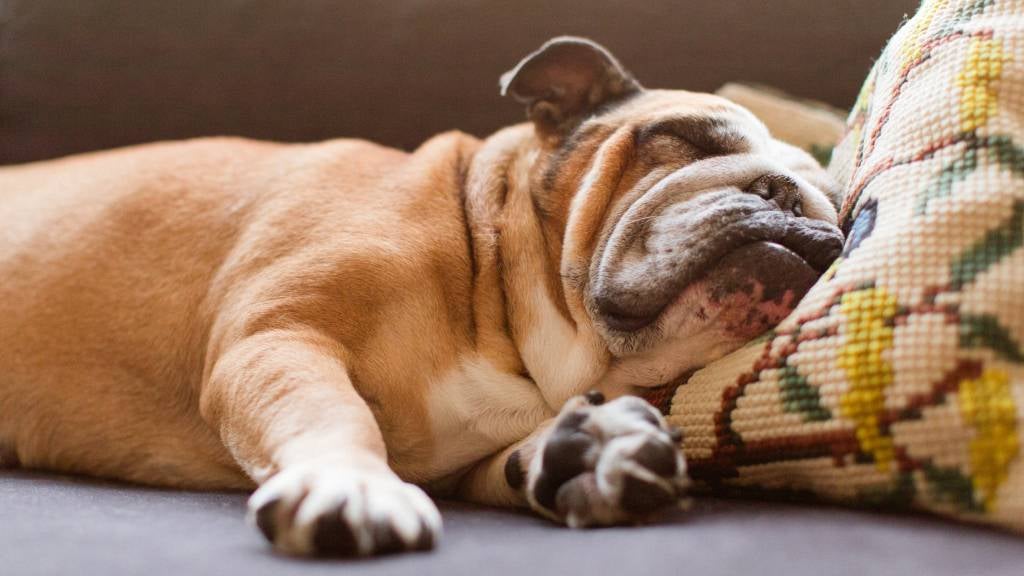The true cost of dog ownership

Are you thinking about owning a dog? Bringing a dog into your life is a joyful experience filled with tail wags, belly rubs, and unconditional love. But with the oodles of fun comes oodles of responsibility — particularly financial responsibility.
How much does it cost to own a dog exactly? Some dogs live on average for 10 to 13 years, so whether you're adopting a new puppy or adding another dog to your family, it's essential to understand the true cost of it all before committing to a new furry friend.
This guide can help you prepare for the financial aspects of becoming a dog parent, covering things from initial expenses to ongoing costs and breed-specific considerations.
What are the initial costs of dog ownership?
The excitement of getting a new dog is quickly followed by considering the upfront expenses of dog ownership. In a world of rising costs, this can vary depending on where you live and whether you choose to adopt or purchase a dog from a breeder.
Generally speaking, here’s what upfront expenses you will likely need to budget for:
1. Purchasing or adopting a dog
- Adoption fees: Though sometimes this can be free, such as if you’re adopting from a shelter or rescue organisation, the typical costs can range anywhere between $29 and $800. This often includes vaccinations, microchipping, and desexing. Adoption is not only a great way to save on upfront costs but also supports a good cause, with proceeds often going to support the work of the adoption centre. Not to mention you could be giving your new furry friend their forever home.
- Buying from a breeder or pet store: The price for dogs, if you’re set on a specific breed or purchasing from a reputable breeder or store, can range from $800 to several thousand dollars, depending on the breed's rarity and pedigree.
2. Setting up your home
Before your new dog arrives, you'll need to make sure your home is ready for them. Research from MoneySmart shows that purchasing pet essentials for them could cost up to $500 in the first year alone, so we’ve broken down the approximate price for everything you might need to keep your new dog comfortable.
- Dog bed: A good quality dog bed can cost anywhere from $30 to $100 or more, depending on the size and materials you choose.
- Crate: Crates are helpful for training and providing a safe space for your dog. Prices typically range from $50 to $150.
- Food and water bowls: These can be relatively inexpensive, usually between $10 and $50 for a good set.
- Leash and collar: Expect to spend around $20 to $50 for a sturdy leash and collar.
- Toys and chews: Keeping your dog entertained and mentally stimulated is crucial, so budget $20 to $100 for a variety of dog toys.
- Grooming supplies: If you plan to groom your dog at home, you'll need brushes, nail clippers, and possibly a grooming table, which can add up to about $50 to $200.
3. Medical expenses
If you’re adopting a dog, many of the below medical expenses will likely be included in your adoption fee. Otherwise, you can expect to spend up to $1,000 in the first year for these medical expenses for your dog:
- Initial vet visit: Your new dog will need a check-up, vaccinations, and possibly deworming or even flea treatments.
- Desexing: If your dog hasn’t been spayed or neutered yet, this procedure can cost between $200 and $500 on average, depending on your location, gender and the size of your dog.
What are the ongoing costs of dog ownership?
Once your dog has settled into your new home life, you'll need to account for different long-term expenses. These are recurring expenses that can add up over the years, so it’s important to budget accordingly.
1. Dog food
Feeding your dog is one of the biggest ongoing expenses of pet ownership. The cost of dog food depends on the size of your dog and the quality of the food you choose.
- Premium food: High-quality dog food can cost anywhere up to $2,024 annually depending on the brand, type (dry or wet food) and how much your dog eats.
- Speciality diets: Dogs with specific health concerns may require speciality diets, which can be even more expensive.
2. Veterinary expenses
Just as people need regular checkups to ensure everything is working well, regular vet visits are essential to keeping your pooch healthy and happy.
- Annual checkups and vaccinations: Expect to spend up to $630 yearly on routine vet visits.
- Flea, tick, and worming treatments: These preventive treatments typically cost up to $329 per year.
- Dental care: Regular dental cleanings can cost up to $1,000 annually, depending on your vet and your dog’s needs.
The Choosi Pet Lovers Report 2022 also highlights that unexpected vet expenses and food are a significant concern for most pet parents (44%). Vet costs can quickly add up, especially if your dog has a chronic condition or requires emergency care, and dog owners may often end up dipping into savings to cover these unexpected costs.
3. Grooming services
Grooming is another cost to keep in mind, particularly for breeds with long or curly hair.
- Professional maintenance: Depending on your dog’s breed and coat type, professional grooming can cost up to $196 per session, with sessions typically needed every 4-8 weeks.
- At-home maintenance: Opting to groom your dog on your own may just help you save money in the long run. Just make sure to leave room in your budget for grooming supplies.
4. Pet insurance
Pet insurance is becoming an increasingly popular way to manage unexpected veterinary costs, with 29% of all pet owners choosing to opt in for it. Research shows that 41% of owners with pet insurance have made claims on their plan, with the highest claim being $1,536.
- Premiums: Pet insurance premiums depend on the coverage level you require based on factors like your dog’s age, breed, and whether or not they’ve been desexed. Looking for a plan for your dog? Get a quote here.
- What’s covered: Many policies cover accidents, illnesses, and sometimes routine or preventative care. Be sure to read up and understand what’s included in your plan.
5. Miscellaneous costs
- Dog walking and doggy daycare: If you work long hours or travel frequently and don’t have a housemate or family member to help watch your dog, you may need to hire a dog walker or pet sitter — many of which charge by the hour or day.
- Training: Whether it’s basic obedience training or behavioural training that addresses specific issues, professional training can cost up to $166 per session.
Breed-specific considerations: picking a dog breed to suit your budget
Different dog breeds come with different costs, so it’s important to consider a dog breed that fits your budget and lifestyle.
1. Size matters
Small breeds
Smaller dogs generally have lower costs. They eat less, require fewer grooming products, and often have more affordable grooming sessions. Their size also means that accessories like beds, crates, and even toys tend to be smaller in size and, therefore, less expensive.
Large breeds
Larger dogs tend to have higher food costs and may require more expensive medical care, particularly as they age. Well-loved breeds like Golden Retrievers and German Shepherds are known for their loyalty but can also come with high vet bills and may require more food.

2. Grooming needs
Low-maintenance breeds
Breeds like Beagles and Dachshunds require minimal grooming, which can save you money in the long run.

High-maintenance breeds
Poodles and Shih Tzus, for example, require regular professional grooming, which can add significantly to your annual expenses.

3. Health considerations
Breed-specific health issues
Some breeds are more prone to certain issues. Bulldogs, for instance, are known for respiratory problems, while large breeds like Great Danes are prone to joint issues. Be sure to research potential health concerns and factor in possible medical costs when choosing.

Considering adding a furry friend to your family? Explore our comprehensive guide to finding the perfect dog breed for your family.
Some possible reasons to budget for pet insurance
Keeping up with the costs for your pooch can be a lot, which is why a potentially effective way to manage the cost of dog ownership is to invest in pet insurance. Here’s are a few reasons pet owners may consider pet insurance:
- Peace of mind: Pet insurance provides peace of mind, knowing that you may be covered in case of accidents, illnesses, or emergencies. According to our report, unexpected vet bills are one of the top concerns for Australian pet parents (36%), and having reliable insurance can help alleviate that stress.
- Coverage for certain expenses: Many pet insurance policies can cover a portion of significant expenses like surgeries, hospital stays, and chronic conditions. This coverage may save you thousands of dollars over your dog’s lifetime.
- Flexibility and customisation: Pet insurance plans are often customisable, allowing you to choose the coverage level that suits your needs and budget. So, whether you want basic accident cover or a comprehensive plan that includes routine and even preventative care, there’s options available for every pet owner.
- Support for ageing pets: As dogs age, they can be more likely to develop health problems that require ongoing care. Having insurance can help cover the cost of treatments and medications, this may mean your dog receives the care they need without breaking the bank.
So is pet insurance worth it? That is up to you to determine. Consider it a safety net for those specified unforeseen costs that can come with owning a dog.
Owning a dog is a rewarding experience, but it’s also a long-term responsibility and financial commitment. By understanding the true cost of owning a dog and planning accordingly, you can provide a happy, healthy life for your furry friend without being caught off guard by unexpected expenses. From the initial cost of bringing a dog into your home, to ongoing expenses like food, grooming, and veterinary care, it’s essential to budget wisely so you and your dog can enjoy many happy years together.
Keep Reading: Discover our New Dog List: 6 Tasks You Can Do For Your Pet.
Now that you're ready to welcome a new dog into your home, make sure you're prepared for all the adventures ahead. Explore pet insurance options with Choosi to find a cover for your new pup.
10 Oct 2024
